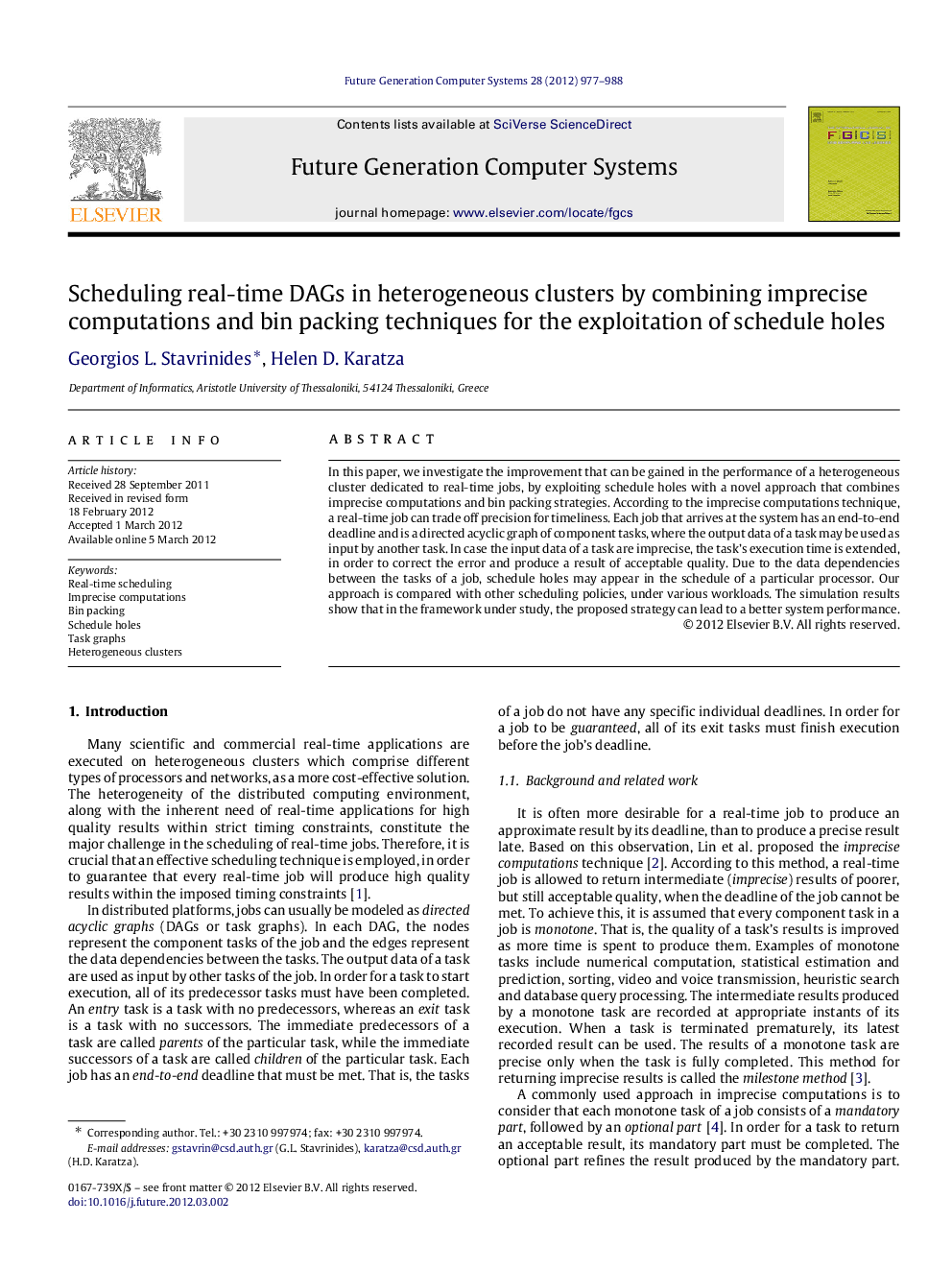| Article ID | Journal | Published Year | Pages | File Type |
|---|---|---|---|---|
| 425993 | Future Generation Computer Systems | 2012 | 12 Pages |
In this paper, we investigate the improvement that can be gained in the performance of a heterogeneous cluster dedicated to real-time jobs, by exploiting schedule holes with a novel approach that combines imprecise computations and bin packing strategies. According to the imprecise computations technique, a real-time job can trade off precision for timeliness. Each job that arrives at the system has an end-to-end deadline and is a directed acyclic graph of component tasks, where the output data of a task may be used as input by another task. In case the input data of a task are imprecise, the task’s execution time is extended, in order to correct the error and produce a result of acceptable quality. Due to the data dependencies between the tasks of a job, schedule holes may appear in the schedule of a particular processor. Our approach is compared with other scheduling policies, under various workloads. The simulation results show that in the framework under study, the proposed strategy can lead to a better system performance.
► Investigation of dynamic real-time scheduling of DAGs in a heterogeneous cluster. ► A novel scheduling approach is used for the exploitation of schedule holes. ► The proposed heuristic combines imprecise computations and bin packing techniques. ► The proposed heuristic outperforms other scheduling policies. ► Significant performance improvement in the case of computationally intensive jobs.
